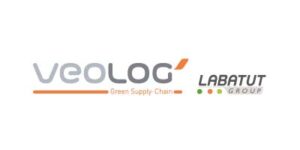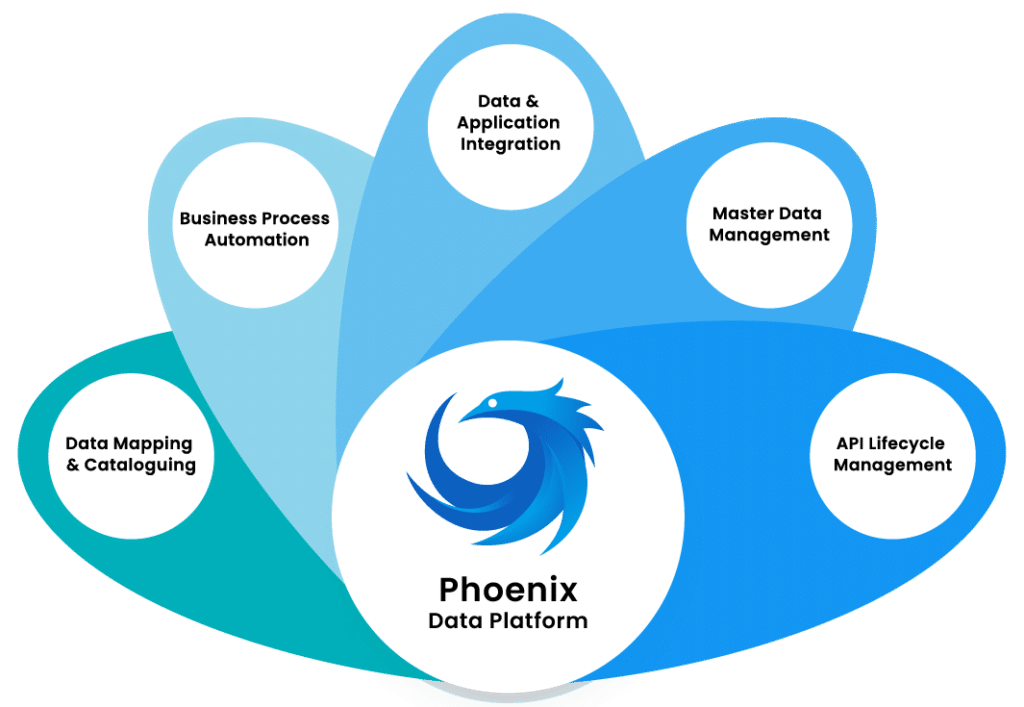Logistics and transport
Digitalization for a continuous view of information flows
Link your transport and warehouse management systems, harmonize and synchronize your logistics data, automate your processes, control your SLAs, and offer new services to your partners via a single low-code data platform that adapts to your needs: Phoenix. Globalization, regulation and fierce competition have long had an impact on the logistics sector. More recently, new vectors are contributing to its rapid transformation: e-commerce, the ecological transition, intermodal transport, the criticality of traceability…
In the face of heightened competition in this sector, after decades of optimization, price can no longer be the sole differentiator. Corporate customers are increasingly looking for high SLA (Service-level agreement) levels, fast delivery, integration of an eco-responsible approach (“green logistics”) and value-added services such as real-time visibility thanks to IoT. Quite simply, because end-customers themselves are demanding a different kind of customer experience!
So, everything points towards a transversal, open and integrated vision of the supply chain, which is no longer limited to separate software: TMS (Transport Management System), WMS (Warehouse Management System)… and data silos per company. Mastery of your supply chain depends above all on mastery of information and continuity of data flows between all players!
The challenges of
of logistics and transport
Where’s my cargo? How fast is the driver going? Are all indicators green? Is communication with my partners’ IS operational? How can I be sure of having all the facts at my disposal in the event of disputes with customers or subcontractors? How can I be warned immediately in the event of a problem?
The ability to answer these questions at all times is at the heart of the transformation of the logistics sector!
your challenge
How can I get my supply chain software (ERP, WMS, TMS, etc.) to communicate with each other?
Your software is at the heart of your organization: ERP, WMS, TMS for transporters, e-commerce site for distributors… Yet each of them has only one facet of the information.
our solution
Standardize internal inter-application exchanges
To consolidate your supply chain vision, these applications need to communicate with each other in real time.
To consolidate your supply chain vision, these applications need to communicate with each other in real time.
The implementation of an application bus or ESB (Enterprise Services Bus) makes this communication fluid and supervised!
your challenge
How can we improve interoperability with logistics partners?
Whether you’re a distributor or a carrier, your information systems need to be bidirectionally connected. You need an immediate view of delivery status at all times, so you can anticipate and publish information to end customers…
our solution
Structuring communications with external information systems
The complementary nature of IS urbanization and the exposure of services and data through API Management means you can share information with your partners’ systems seamlessly and securely.
your challenge
How do you ensure the accuracy and traceability of business activities?
You need to be sure that you’re delivering the right goods to the right person at the right time, in compliance with procedures, and that the process is traced and logged in order to monitor service levels.
our solution
Control and trace cross-functional processes
It’s the BPM (Business Process Management) dimension that provides this modeling and traceability of business activities. This global process supervision also enables you to identify areas for optimization, and contributes to your operational excellence.
your challenge
How can I promote my supply chain expertise to my partners and customers?
Your mastery of the supply chain and the wealth of information you gather constitute a competitive advantage that deserves to be fully exploited.
our solution
Offering complementary services
By integrating the IoT and exposing selected facets of your information system, you can offer complementary services, transparency and visibility, all of which are assets in the eyes of your customers!



What methods and solutions are available to support the digital transformation of logistics and transport?
Whether you work in the logistics department of a retailer or for a carrier, models are changing and IT tools are multiplying. This is true at the heart of logistics, with WMS (Warehouse Management System), RFID (Radio Frequency Identification) technologies, TMS (Transport Management System), robotization… as well as for the supply chain as a whole (e-commerce site, ERP…).
Each of these tools fulfills an essential but partial role in the supply chain. Your processes and deadlines are extremely tight, and you need instant feedback on information flows and data processing to react immediately. Being proactive is not an option for you!
EDI (Electronic Data Interchange) meets part of the challenge, but it will be difficult to exchange data with all applications. Similarly, focusing solely on connections between applications does not provide a complete answer: the processes and alerts dimension is also a facet to be taken into account.
To ensure that each component of your Information System fully fulfills its role, the solution must provide a global, shared vision of processes, flows and information, integrating all the dimensions of data exchange.
The Phoenix data platform for the digital transformation of logistics and transport
At Blueway, our teams work with retailers’ logistics departments and transport companies to help them meet the challenges of operational excellence and information flow management, in order to:Stand out from the crowd
by offering value-added services to your customers.
Supervise your flows
in their entirety and participate in the continuous improvement of your processes.
Meet current standards
specific to logistics.
Urbanize your Information System
and support the high volume and complexity of your data flows.
The Phoenix platform: a 360° response to the Data challenges of logistics players
Phoenix is a complete platform (BPM, ESB, API Management and Data Catalog) for structuring information flows in the logistics sector.
This full-web platform will reconcile data from different applications and heterogeneous environments, ensure data governance and pilot your processes to offer a consolidated and continuous vision of your logistics information chain.
Available as SaaS or On-Premise, our solution is full-web and low-code, guaranteeing rapid deployment and complete ownership by both your IT and business teams.
about our logistics solutions?
Our latest content on logistics and data management
Since the 2008 financial crisis, regulatory authorities have required banks and insurance companies to ensure...
Transparency and access to data: a responsibility for organisations In 2025, the issue of the...
Artificial intelligence is at the heart of our society’s concerns today: platform recommendation systems, autonomous...
Our FAQs on the digitalization of the logistics sector
Phoenix centralizes and automates the processing of returns and complaints, speeding up resolution and improving the customer experience.
The platform enables each return or complaint to be tracked and managed efficiently, from initial registration to final resolution. This ensures a rapid response to customers, while providing valuable data for analyzing the reasons for returns and improving the quality of products or logistics services.
Phoenix ensures end-to-end traceability by integrating data from ERP, WMS and TMS systems, offering total visibility over the product journey. The platform also enables data to be collected and aggregated at every stage of the supply chain.
